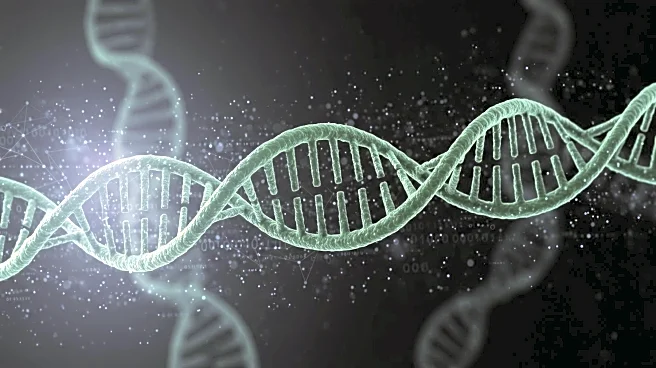What's Happening?
The global market for DNA ancestry and family-finding tests is rapidly growing, despite privacy concerns and ethical questions. Companies like AncestryDNA, 23andMe, FTDNA, and MyHeritage are leading the market, offering genetic tests that can reveal ethnic roots and locate biological relatives. These tests involve providing a saliva sample or cheek swab, which is analyzed in labs in the U.S. or Europe, with results delivered online within 30 to 60 days. However, the use of genetic data raises significant privacy issues, especially after 23andMe filed for bankruptcy protection, causing concerns about the security of its genetic database. The company was later acquired by a research fund that promised to protect user privacy, but trust remains shaken. Additionally, law enforcement's use of private genetic databases to identify suspects or victims has sparked debate.
Why It's Important?
The expansion of DNA testing has profound implications for personal identity and privacy. While these tests can provide life-changing insights into one's heritage and biological connections, they also pose risks related to data privacy and ethical use. The potential misuse of genetic data by companies or law enforcement agencies could lead to privacy violations and ethical dilemmas. Furthermore, the revelation of unexpected familial connections can cause emotional distress and disrupt family dynamics. As the market for DNA testing grows, it is crucial to address these privacy concerns and establish regulations to protect individuals' genetic information.
What's Next?
As DNA testing becomes more widespread, there is likely to be increased scrutiny and demand for regulatory frameworks to ensure the ethical handling of genetic data. Companies may need to enhance transparency regarding data usage and strengthen security measures to regain consumer trust. Additionally, ongoing debates about the use of genetic databases by law enforcement could lead to policy changes or legal challenges. Stakeholders, including privacy advocates, legal experts, and genetic testing companies, will need to collaborate to address these issues and balance the benefits of genetic research with the protection of individual privacy.
Beyond the Headlines
The rise of DNA testing also highlights broader cultural and ethical questions about identity and belonging. As individuals discover new aspects of their heritage, they may experience shifts in self-perception and face complex decisions about connecting with newfound relatives. These developments could influence societal views on family, ethnicity, and personal history, prompting discussions about the role of genetic information in shaping identity.









